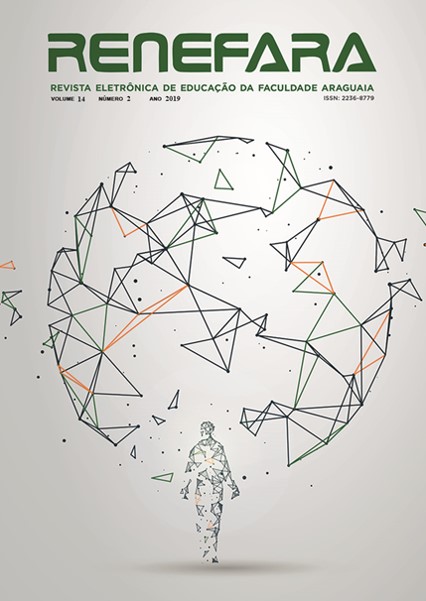DIAGNOSIS OF THE ENVIRONMENTAL DEGRADATION IN THE AREA OF PRESERVATION OF MACAMBIRA AND PINDAÍBA STREAM
Abstract
The occupation of urban permanent preservation areas has been occurring due to the great urbanization process, the city of Goiânia does not escape this reality. This study consisted of a survey of the degradation processes of the permanent preservation areas and the most appropriate techniques for the recovery of the Macambira and Pindaíba streams. The data were collected in loco, verifying the main degradations generated by natural and anthropic actions. It was possible to observe that the area under study was degraded mainly by human intervention, with the undue occupation of the Permanent Preservation Areas for real estate use and for agricultural and grazing activities, due to the loss of gallery forests, it was also possible to identify erosive processes along the edges of Macambira and Pindaíba streams. From the surveys carried out in the present study, it can be concluded that with the adoption of techniques of revegetation of the permanent preservation areas and with the withdrawal of the real estate and agricultural and grazing activities of the place the native vegetation can be restored by promoting a more balanced urban ecosystem.Downloads
Published
Issue
Section
License
The copyright of the published articles will be transferred to the Uniaaraguaia Magazine, allowing its subsequent reproduction as transcription and with due citation of source. In the event of acceptance and before the publication of the article, the plaintiff (s) shall write a statement formally transferring copyright to the magazine.
The author may also print and distribute copies of his article, provided that he mentions that the rights belong to the Uniaaraguaia Magazine.
Author rights include the right to reproduce in full or partly by any means, distribute this article, including figures and photographs.
By submitting originals to the Uniaaraguaia magazine, the author or authors express agreement with the following terms:
a) Authors maintain copyright and grant Uniaraguaia magazine the right of first publication, with the work simultaneously licensed under the Creative Commons Attribution license that allows the sharing of work with recognition of the authorship and initial publication in this magazine.
b) Authors are authorized to assume additional contracts separately, for non-expiration distribution of the work version published in this magazine (eg publish in institutional repository or as book chapter), with recognition of authorship and initial publication in this journal.
c) Authors are allowed and are encouraged to publish and distribute their work online (eg in institutional repositories or on their personal page) to any point before or during the editorial process, as this can generate productive changes as well as increase the impact and citation of published work.

